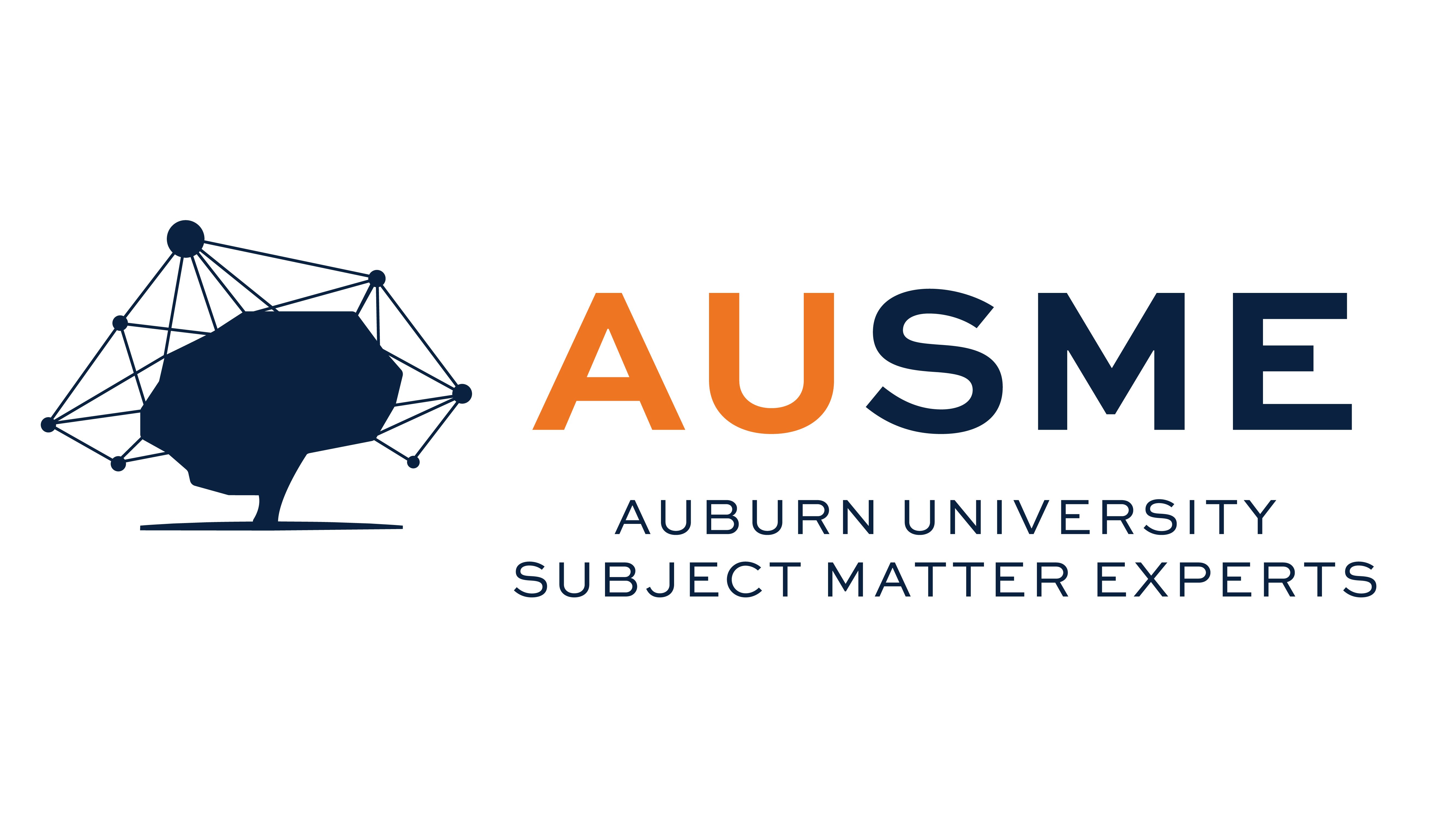College launches novel internet tool designed to foster research collaboration across multiple disciplines
Published: Jul 3, 2025 8:15 AM
By Joe McAdory
Looking for a research collaborator with expertise in artificial intelligence (AI), biomedical sensors or sustainable materials? What about a potential research connection with specialties in aerospace engineering, advanced manufacturing or renewable energy?
A dedicated team of faculty, staff and students within the Samuel Ginn College of Engineering recently developed a powerful online platform — AUSME — that accelerates interdisciplinary research by connecting experts across multiple fields.
AUSME (Auburn University Subject Matter Experts) is more than just a faculty research database. It’s a searchable, artificial intelligence-powered tool that transforms how researchers discover one another, form collaborations and pursue complex, cross-disciplinary challenges.
Drawn from across the college’s research, communications and computing units, the AUSME development team included AI developer Mostafa Rahgouy and frontend specialist Soundarya Korlapati, both Ph.D. candidates in computer science and software engineering; Tyler Patterson, senior application systems analyst; Emily Maddox, manager of Salesforce and data administration; Kelley Terry, director of research program development and grants; Shannon Price, director of network services; and others who contributed time and expertise to the project.
“This team didn’t just create a database — they built an engine for discovery,” said Gerry Dozier, director of the Auburn University Center for Artificial Intelligence and Cybersecurity Engineering and McCrary Eminent Chair Professor. “Their commitment to supporting Auburn’s research enterprise, through smart, equitable, forward-thinking tools like AUSME, reflects the kind of innovation we need to solve real-world problems.”
AUSME compiles publicly available research data — including faculty publication records, citation metrics, co-author networks and academic backgrounds — into interactive, easy-to-navigate profiles. Users can search by keyword, filter by department or topic and even explore similar profiles based on shared research interests or collaboration histories.
It’s designed to serve a wide range of users: from students looking for research mentors, to faculty pursuing interdisciplinary grants, to external partners — such as federal labs or private industry — seeking connections to Auburn expertise.
“The team who built AUSME understand research,” said Allan David, associate dean for engineering. “They’ve created a tool that’s not just functional — it’s strategic. AUSME helps surface the kind of partnerships that drive innovation: when a mechanical engineer connects with a biomedical scientist, or when a cybersecurity expert collaborates with a civil engineer. That kind of work doesn’t happen by accident — it happens when you can connect the right people. AUSME makes that possible.”
AUSME’s AI engine helps users identify connections they might otherwise miss — including researchers who share topical interests but work in different departments.
“Traditionally, collaboration relied on who you knew or recommended,” David said. “But that system can overlook great partners. AUSME makes connections visible and data- driven.”
Dozier added that the platform opens the door to more strategic partnerships — not just within Auburn, but beyond it.
“If you’re an external partner — say from a national lab or a startup — AUSME gives you a transparent, intelligent way to understand what Auburn has to offer,” Dozier said. “You’re not just seeing names and titles. You’re seeing networks, research impact, and expertise in context.”
The development team is already working on enhancements. Planned features include AI-generated research summaries, more advanced visualizations of collaboration networks and expanded search filters.
“This isn’t a static tool,” David said. “It’s evolving alongside the needs of our researchers. AUSME is going to become an essential part of how research teams are formed — and how Auburn continues to lead in solving tomorrow’s grand challenges.
Visit ausme.auburn.edu to discover faculty expertise, explore collaboration opportunities and see how AUSME can support your next research endeavor.
Media Contact: , jem0040@auburn.edu, 334.844.3447
AUSME compiles publicly available research data — including faculty publication records, citation metrics, co-author networks and academic backgrounds — into interactive, easy-to-navigate profiles.



